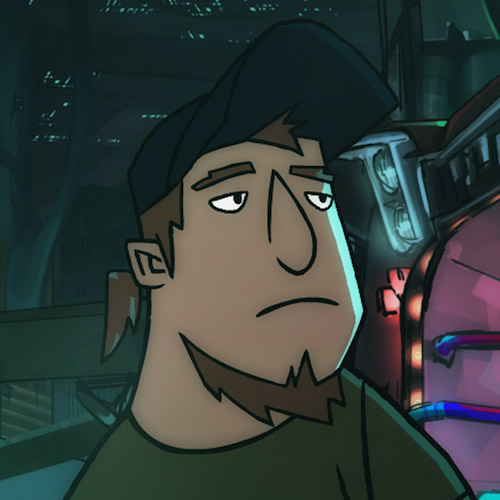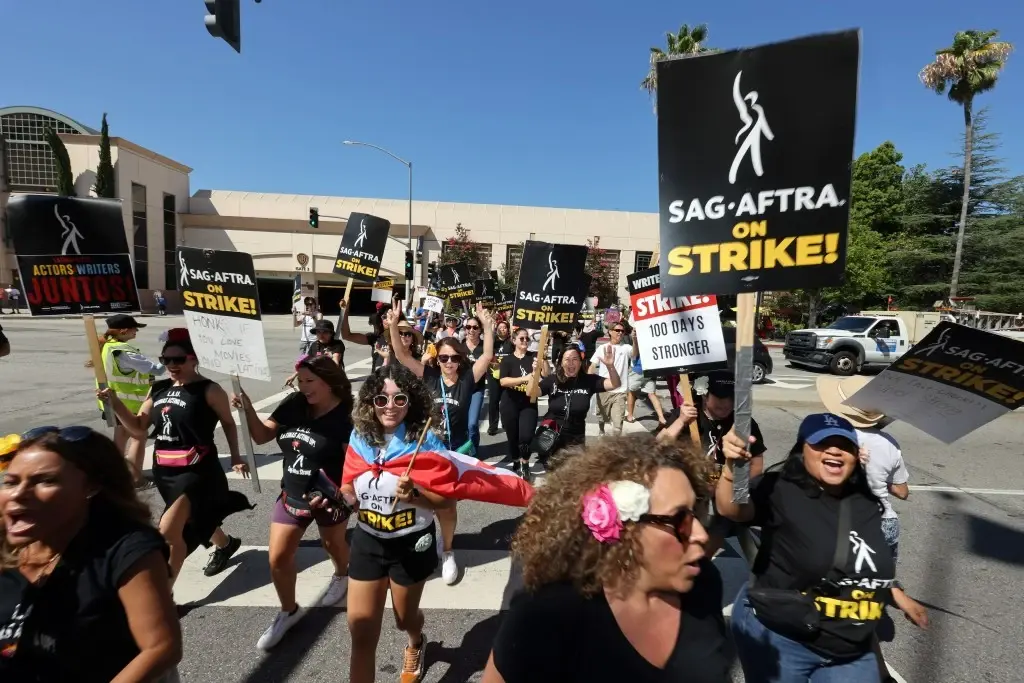The financial impact of ongoing actors and writers strikes has a number on it now, or one at least, as Warner Bros. Discovery said today it’s looking at a hit of $300 million to $500 million in adjusted EBITDA (earnings before interest, taxes, depreciation and amortization) for 2023 due to the work stoppages.
In a filing this morning with the Securities and Exchange Commission, WBD said “it is expecting lower adjusted EBITDA for the full year in the range of $10.5 to $11 billion, reflecting the company’s assumption that adjusted EBITDA will be negatively impacted by approximately $300 to $500 million, predominantly due to the impact of the strikes.”
WBD execs indicated on a qarterly earnings call in August that their full-year financial guidance assumed the strikes would be resolved by early September. But with no resolution in sight, it is revisiting and quantifying that guidance now.
It will be interesting to see if and how the tone starts to shift heading into the fall, and if other studios will also start to revise earnings guidance. The earnings hit that WBD announced today is already baked in for 2023 — meaning it wouldn’t really change even if the strikes resolved soon.

You know what wouldn’t cost half a billion dollars a year? Giving into the demands of those striking.
Especially since I believe the estimated cost of agreeing to the requests would’ve been ~47M USD, which is literally less than a tenth of their current losses.
My feeling is this is not about the short term costs, but is about:
- Crushing the idea that strikes work, and workers hold all the power
- Making sure they can use cheap AI generated assets/ scripts in the future

[Insert Joker meme about sending a message]
I also heard an interesting take from a union organizer: that companies have been able to go so long without having to negotiate in good-faith that they’ve lost the institutional knowledge of how to do it.

Imagine needing institutional knowledge in order to do something in good faith. That sounds a lot like they’re full of dehumanized ethical corruption.

Hmmm sounds like you’re asking a lot. What if instead they continue to sell off their valuable IP and media library while also dissolving brands that have served them well for about 30 years and then also remove all trace of already produced shows and movies so that nobody can ever watch them again?

Music to my ears. Can’t believe how badly creatives are paid in the US, especially given how important they are for the country’s soft power.

*Warner Bros. Discovery Causes Its Own Earnings Hit Of Up To $500 Million This Year For Not Signing The Contracts With Writers And Actors - *FIXED

Give the actors and writers what they want, and the problem goes away. Pretty simple solution.
You guys want to pay 1985 wages and use 1985 payment systems in 2023, when the cost of living has skyrocketed, and methods of content distribution have completely changed. It doesn’t work that way, it CAN’T work that way, and you’ll have to adapt to 21st century standards if you want to continue to do business.
The reason we’re seeing all these worker strikes is that they’ve been pushed to the brink by starvation wages and unpaid overtime. You’ve dragged your feet on paying 21st century wages for 21st century work, and the workers literally can’t survive on what you’re paying them.

I think Netflix is being the biggest stick in the mud here.
- Netflix has invested heavily in sourcing content from non-unionized markets, such as South Korea.
- Netflix has banked a ton of finished but unreleased content to keep the drip feed going for up to a year.
- Netflix has been operating on special contracts originally approved by the guilds under the guise of being a new player establishing a new market. The guilds obviously don’t want to keep that charade going, because Netflix and streaming are no longer “new”. They know that now is the time to figure out how to make streaming sustainable and profitable for their members.
Established players like Disney and Warner may not be chomping at the bit to give in to all the union demands, but they know how these things play out. Their businesses are not built to survive protracted disruptions like this quite so easily, with many of them about to run out of content and being forced to conserve what they do have banked through at least mid-2024.
This is why you’re not really seeing headlines about the strikes hurting Netflix the way they are hurting everyone else. They were the best prepared and have the most to lose.

Frankly, I’m shocked (shocked!) that Netflix is even still a thing after all the other studios broke away to start their own streaming services. What the hell do you have to offer without them? Shitty live action adaptations of anime, which nobody wants?

I mostly watch documentaries and original animation (Captain Fall, Disenchanted, Castlevania…) on Netflix. But I agree that most of their original content quality has been garbage compared to when it started doing some.

If only there was a way the Studios could have made money instead of losing money! We could call it, negotiated fair rates or something!

They laughed saying strikers would give up. Most writers and actors know how to scrimp and save, how to make every dollar count. Now we get to see the top 1% start missing bonuses and profit targets. I have a feeling I know who will crack first.

In another month, people are going to expect new shows and new episodes of older shows on television. When they don’t get them, viewers will demand answers, and action.


